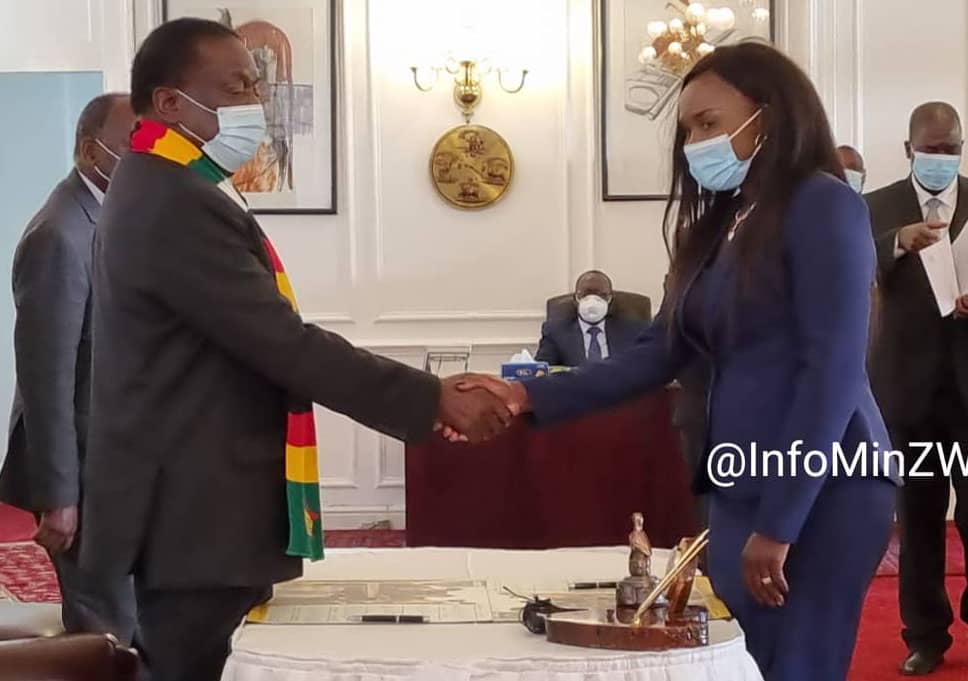‘Zanu PF afraid of inevitable defeat’ – says Chamisa after appointment of Mohadi’s daughter as elections commissioner

Abigail Mohadi and President Mnangagwa
CITIZENS Coalition for Change (CCC) president Nelson Chamisa reckons the appointment of former Vice President Kembo Mohadi’s daughter Abigail Ambrose as a Zimbabwe Electoral Commission (ZEC) commissioner is a sure sign Zanu PF is living in fear of defeat at next year’s polls.
Ambrose’s appointment caused an uproar within civic society and opposition circles.
Both questioned the independence of the commission and whether she will not be a victim of a conflict of interest as her father is still deputy leader in the ruling Zanu PF party.
The CCC has demanded that her appointment be reversed, amid revelations she also struggled with simple questions during interviews held to replace commissioners whose period of operation had lapsed.
“It can’t. Not this time! This time we won’t accept any funny games or their usual nonsense,” said Chamisa on Twitter.
“Zimbabwe is for all citizens, not one party! The liberation struggle was for us all not just a few! We demand total liberation, full restoration of our dignity and rights in Zimbabwe!”
“They are so afraid of the inevitable defeat. We will win any free and fair elections anytime in Zimbabwe,” he later added in response to questions on the appointment of Ambrose.

ZEC was at the centre of a heavily contested 2018 presidential election which was eventually settled by the Constitutional Court in favour of incumbent Emmerson Mnangagwa.
Chamisa and his outfit have maintained they won the election. He has refused to acknowledge the defeat, arguing Zanu PF’s win was engineered by ZEC.
Government spokesperson Nick Mangwana however, came out in defence of Mohadi’s appointment, hours after she was sworn in.
Mangwana argued that children of high-ranking government officials had an equal right to employment and serving the nation.
“Children and relatives of high-profile people have the right to employment and service to their country as everyone else. That’s why it is called, ‘equal opportunities’, Mangwana said.
“It is called professionalism. Secondly, no single commissioner can override the work of the whole commission, they work as a collective.
“Thirdly, is it not that people were openly interviewed by Parliament? Was there a more qualified applicant who was excluded?”






